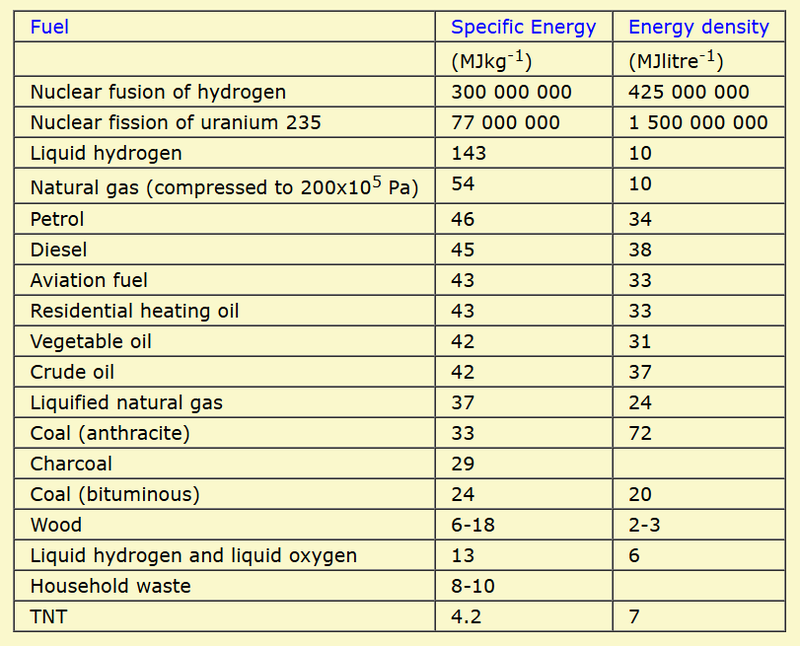What is a Fuel?
- A fuel is a material that can be burnt to produce heat, light or mechanical energy that can be used to do work.
- Coal, oil and gas are called "fossil fuels" as they are made from organic matter that altered under immense heat and pressure for millions of years.
- Different fuels can produce different amounts of energy when they are burnt.
- The amount of energy produced when burning a fuel is determined by energy density.
Energy Density
- Energy density, is measured in megajoules per litre, or MJ l⁻¹.
- Properly defined as the energy transferred from unit volume of fuel.
- It shows the amount of energy burning a fuel produces compared to its volume.
- Energy density can also use meters cubed instead of litres to describe volume, in which case it is written as MJ m⁻³.
Specific Energy
- Specific energy is an alternate way of measuring energy density.
- It is based on mass instead of volume and it is described as MJ kg⁻¹.
- Properly defined as the energy transferred from unit mass of fuel.
Specific Energy and Energy Density of Different Fuels

Sources
https://www.schoolphysics.co.uk/age16-19/Mechanics/Dynamics/text/Energy_density_of_fuels/index.html